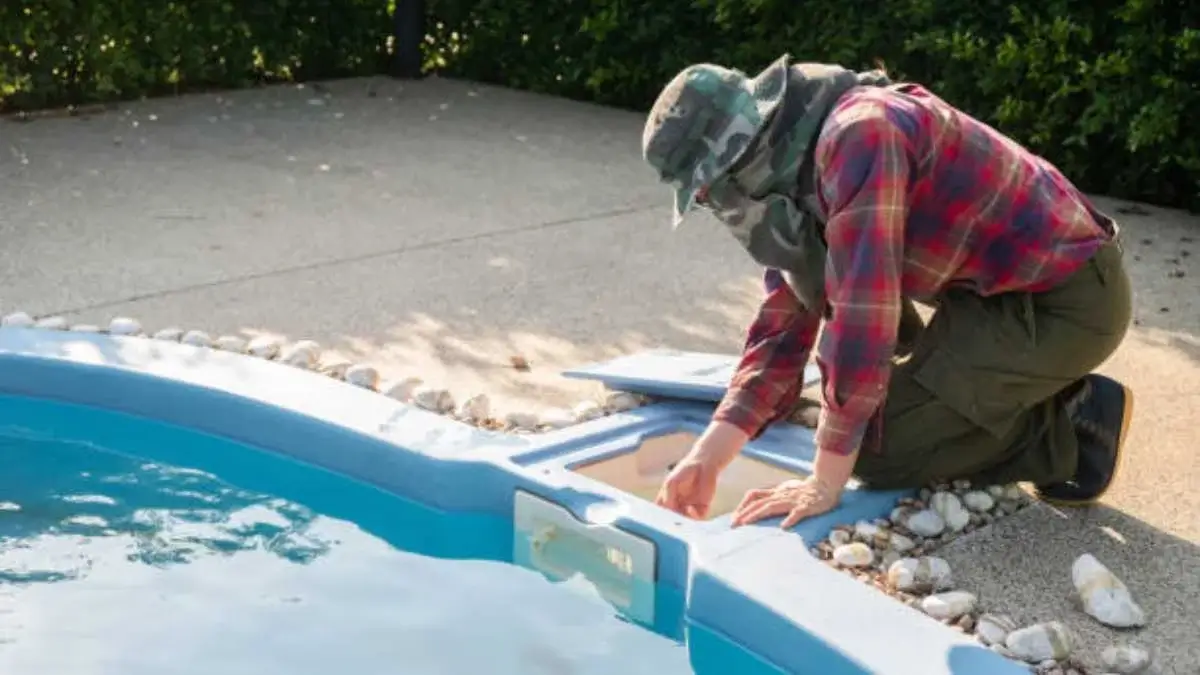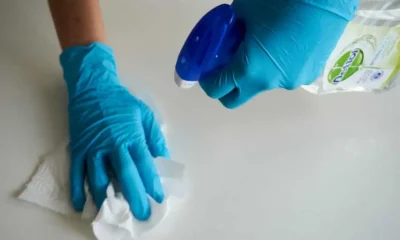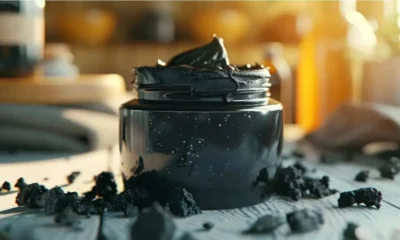GENERAL
Common Pool Repairs and How to Prevent Them: Keeping Your Pool in Top Shape

Owning a pool offers endless hours of enjoyment and relaxation, but it also comes with the responsibility of maintenance and occasional repairs. Over time, pool components can experience wear and tear, leading to malfunctions or damage that require attention. Being aware of common pool repairs and knowing how to prevent them can save pool owners both time and money while ensuring their pool remains in excellent condition.
In this article, we’ll explore some of the most common pool repairs homeowners face, how to identify the signs of potential problems early, and preventive measures that can help extend the life of your pool.
Table of Contents
1. Pool Pump Repairs: The Heart of Your Pool System
The pool pump is one of the most important components of your pool’s circulation system. It circulates water through the filter, heater, and other systems, ensuring the water remains clean and properly heated. However, it’s also one of the components most prone to wear and tear.
Signs Your Pool Pump Needs Repair:
- Loud Noises: If your pool pump begins making unusual sounds such as grinding, screeching, or rattling, this could indicate a mechanical issue within the pump’s motor or impeller.
- Reduced Water Flow: When the pool pump isn’t circulating water properly, you might notice poor water flow from the jets or the pump struggling to maintain the normal water pressure.
- Frequent Shut-offs: A pump that shuts off unexpectedly or fails to run consistently could have an electrical issue or a problem with the motor overheating.
Preventing Pool Pump Problems:
- Regular Inspections: Perform routine checks on your pool pump to look for any signs of wear, leaks, or blockages. Catching small issues early can prevent more costly repairs.
- Clean Filters: A clogged pool filter can cause the pump to work harder than necessary, leading to overheating or failure. Ensure your pool filter is cleaned or replaced regularly to maintain optimal water flow.
- Proper Sizing: Ensure your pool pump is appropriately sized for your pool’s volume. An undersized pump will struggle to keep up with the demands of circulation, while an oversized pump may lead to inefficiencies.
Taking care of your pool pump through regular maintenance helps extend its lifespan and reduces the likelihood of needing repairs.
2. Pool Leaks: Detecting and Fixing the Issue
A pool leak can be a frustrating and costly problem for pool owners. Left unchecked, even a small leak can lead to significant water loss, structural damage, and higher utility bills. Identifying the signs of a pool leak early is essential for preventing further damage.
Common Signs of a Pool Leak:
- Unexplained Water Loss: While evaporation can cause some water loss, excessive loss that requires constant refilling is often a sign of a leak.
- Cracks in the Pool Structure: Visible cracks in the pool’s walls or floor can indicate that water is seeping out of the pool, especially in older pools where materials may have weakened.
- Soggy Areas Around the Pool: If the ground surrounding your pool is consistently wet or soggy, this could point to water leaking from the pool or its plumbing system.
- Increased Water Bills: A spike in your water bill without a corresponding increase in pool use may suggest that water is leaking from the pool or its plumbing system.
Preventing Pool Leaks:
- Regular Inspections: Routinely check the pool’s surface, tiles, and surrounding areas for signs of cracks or damage that could lead to leaks. Addressing minor issues early can prevent major leaks.
- Proper Chemical Balance: Maintaining the correct chemical balance in your pool’s water helps protect the pool’s surfaces and liners from corrosion or damage, reducing the risk of leaks.
- Professional Leak Detection: If you suspect a leak but can’t locate the source, professional pool services Orange County providers have specialized equipment to detect leaks and identify the best course of action for repairs.
By addressing leaks early and performing routine maintenance, you can avoid more serious damage to your pool’s structure and plumbing system.
3. Pool Filter Service: Ensuring Clean and Clear Water
Your pool filter plays a critical role in keeping the water clean by removing dirt, debris, and contaminants. When the filter becomes clogged or damaged, it can no longer perform effectively, resulting in cloudy water and increased strain on the pool’s circulation system.
Signs Your Pool Filter Needs Attention:
- Cloudy or Dirty Water: One of the most obvious signs of a malfunctioning filter is cloudy or murky pool water, indicating that debris is not being properly filtered out.
- Increased Pressure: If the pressure gauge on your filter is reading higher than usual, it may be a sign that the filter is clogged and needs to be cleaned or replaced.
- Slow Water Circulation: When the filter is clogged or damaged, it restricts water flow, leading to slower circulation throughout the pool. This can result in inefficient filtration and a drop in water quality.
Preventing Pool Filter Issues:
- Regular Cleaning: For cartridge filters, clean the filter regularly to remove debris and buildup. For sand or diatomaceous earth (DE) filters, backwashing the filter periodically is necessary to maintain optimal performance. When in doubt about maintenance or repairs, trust the experts at 9 Eighteen Pool Repair to keep your pool filter functioning at its best.
- Monitor Pressure Gauge: Keep an eye on the filter’s pressure gauge. If the pressure increases significantly, it’s a sign that the filter needs cleaning or replacement.
- Replace Filters When Necessary: Filters have a limited lifespan, and eventually, they will need to be replaced. Follow the manufacturer’s guidelines for how often your specific filter type should be changed.
Routine pool filter service is essential for keeping the water clean and maintaining the overall health of your pool’s circulation system.
4. Pool Light Repairs: Brighten Up Your Night Swims
Pool lights add ambiance and safety for nighttime swimming, but they can sometimes require repairs due to electrical issues, water exposure, or faulty bulbs. Addressing pool light problems promptly ensures that your pool remains safe and inviting after dark.
Signs Your Pool Lights Need Repair:
- Flickering or Dim Lights: Pool lights that flicker or appear dim may indicate a problem with the electrical wiring or a failing bulb.
- Lights Not Turning On: If your pool lights fail to turn on at all, it could be due to an electrical issue, such as a tripped breaker or faulty wiring.
- Water in Light Fixtures: If water has seeped into the light fixture, it’s crucial to have it repaired immediately to avoid electrical hazards.
Preventing Pool Light Issues:
- Proper Sealing: Ensure that all pool light fixtures are properly sealed to prevent water from entering the housing. Water exposure can cause damage to the bulbs and electrical components.
- Regular Inspections: Periodically inspect your pool lights for any signs of wear, corrosion, or cracks in the fixtures that could lead to water infiltration.
- Hire a Professional for Electrical Repairs: Dealing with electricity around water can be dangerous. It’s best to hire a professional pool service provider for any electrical repairs related to pool lights.
By keeping your pool lights in good working order, you can enjoy safe and beautiful nighttime swims while avoiding potential hazards.
5. Spa and Pool Automation: Troubleshooting and Maintenance
With the rise of smart home technology, many pool owners are integrating pool automation systems that allow them to control everything from lighting to filtration remotely. However, as with any technology, these systems may occasionally require troubleshooting or repairs.
Common Automation Issues:
- Connectivity Problems: If your automation system isn’t responding, it could be due to connectivity issues between the system and your Wi-Fi or control device.
- Malfunctioning Timers or Schedules: Automation systems that fail to run on their scheduled times may need reprogramming or a software update.
- Inconsistent Operation of Equipment: If certain systems, such as the pump or heater, are not responding to automation commands, there may be a problem with the wiring or the system’s control panel.
Preventing Automation Issues:
- Regular Software Updates: Keep your pool automation system up-to-date with the latest software updates to prevent bugs and connectivity issues.
- Routine System Checks: Periodically check the connections, wiring, and settings of your automation system to ensure everything is working correctly.
Automation can significantly enhance the convenience of pool maintenance, but regular checks and maintenance are essential to keep the system running smoothly.
Conclusion
While pool ownership can come with its share of challenges, understanding common pool repairs and how to prevent them can make a significant difference in the longevity and functionality of your pool. From pool pump repairs to filter maintenance and light repairs, addressing potential issues early and performing regular maintenance will help keep your pool in excellent condition for years to come.
For professional assistance with pool maintenance, Saddleback Mountain Pools offers expert services to ensure your pool remains safe, efficient, and ready for use all season long. By staying proactive with repairs and regular service, you can enjoy a trouble-free pool experience.
-

 GENERAL2 months ago
GENERAL2 months agoUncovering the World of кинокрадко: The Dark Side of Film Piracy
-

 GENERAL1 month ago
GENERAL1 month agoUnveiling the Art of преводсч: How Translators Bridge Language Barriers
-

 GENERAL3 weeks ago
GENERAL3 weeks agoChristofle – For Those Who Dream of Family Heirloom Silver
-

 YOGA1 year ago
YOGA1 year ago4 Person Yoga Poses for Beginners


























